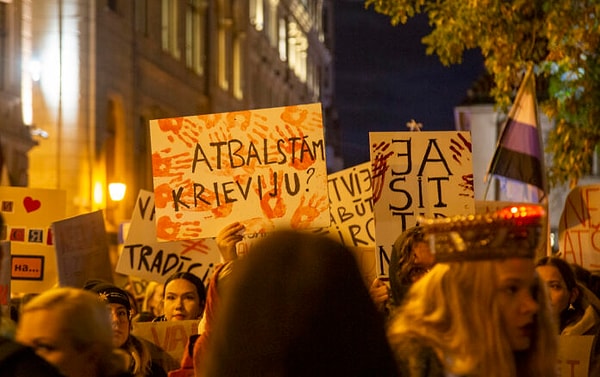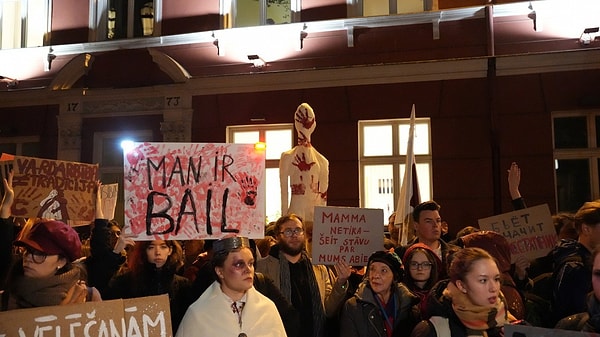For the first time, an EU country has decided to withdraw from the Istanbul Convention
Following a historic 13-hour session, the Latvian Parliament approved a law proposing the country's withdrawal from the Istanbul Convention. Should President Edgars Rinkevics sign the law, Latvia would become the first European Union member state to exit this convention. The decision to withdraw from the Istanbul Convention, internationally known as the 'Council of Europe Convention on Preventing and Combating Violence Against Women and Domestic Violence,' has sparked widespread reaction both within the country and abroad.
The decision rests on the president's approval, however, the president has the power to veto this decision.

As reported by the Latvian public broadcaster LSM, a vote was concluded following an intense session that lasted approximately 13 hours. Should this decision come into effect, Latvia would become the first European Union country to withdraw from the Istanbul Convention.
For the law to become valid, President Edgars Rinkevics must give his approval within 10 days. Although Rinkevics has the right to veto the law and send it back to parliament, he does not have the authority to object again if the lawmakers accept the same decision for the second time.
In a statement made on social media platform X, Rinkevics expressed that he would evaluate the decision not based on ideological or political grounds, but within the framework of 'state interests and legal justifications'.
Why does Latvia want to withdraw from the Istanbul Convention?

Parties proposing withdrawal in Latvia argue that this decision hampers the institutions of Latvia and assert that they are unable to effectively combat violence and sexual assault due to the responsibilities imposed. However, the underlying truth is the 'gender' section.
The deputies and parties making the proposal express their reservations under the guise of 'protecting the family'. Even though the contract aims to eliminate violence, opposition deputies particularly emphasize the concept of 'gender' used in one of the articles of the contract, and they claim it has a negative impact on traditional family values.
There are also protests within the country.

Across Latvia, women's rights organizations and civil society representatives have vehemently protested against the country's decision to withdraw from the Istanbul Convention. Mass protests have been organized in front of the parliament building, while some opposition parties are preparing to take the law to the Constitutional Court. Experts point out that although it is legally possible to take the decision to a referendum, implementing such a move would be extremely challenging.
The bill proposing withdrawal from the Convention was introduced to the parliament by the opposition party 'Latvia First'. The proposal was approved with the support of one of the three parties in the ruling coalition. The centrist-right New Union Party, currently in power in the country, had formed the government with a vote share of 18.9% in the 2022 elections.
Keşfet ile ziyaret ettiğin tüm kategorileri tek akışta gör!

Send Comment